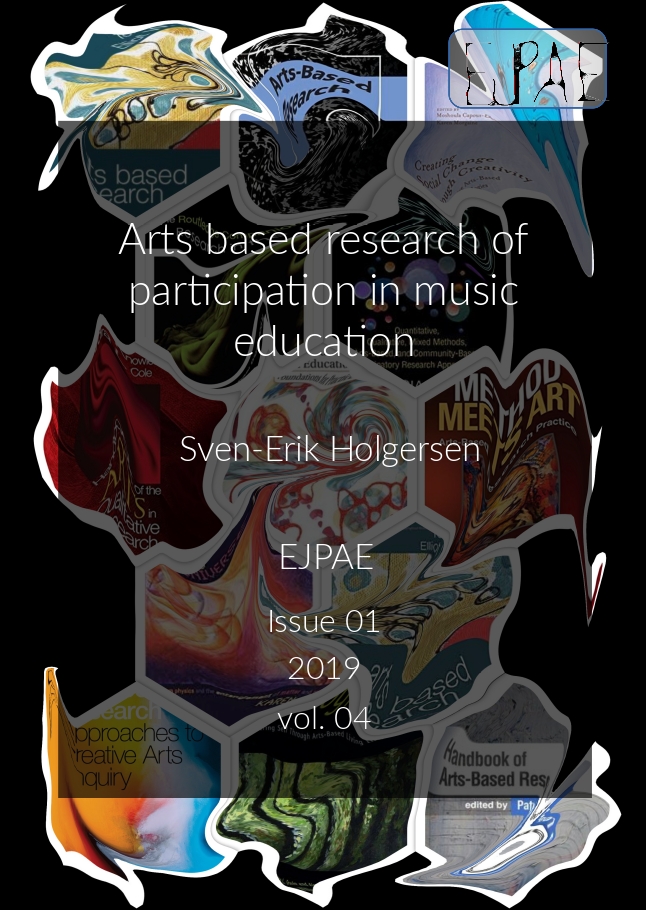Arts based research of participation in music education
DOI:
https://doi.org/10.5281/10.5281/zenodo.3572504Keywords:
Aesthetic meaning, young children, participation, validityAbstract
In search of validity in arts based research, the present article takes meaning as the point of departure asking the following questions:
• What or who constitutes meaning?
• In which context(s) and to which extent can the meaning in question be considered true or valid?
• How can aesthetic meaning support validity?
The context for the discussion is a previous study aiming to understand children’s participation strategies in music activities. Using a phenomenological approach, the study aimed to understand in which ways participation proved meaningful to children.
After presentation of the study, the discussion focuses on concepts of meaning and validity and how they relate to arts based research in particular. Four different themes are briefly discussed: the theoretical basis supporting validity, aesthetic meaning in terms of ambiguity and recognisability, the role of aesthetics in arts based research, and finally the aesthetic attitude in aesthetic experience and research.

Downloads
Published
Issue
Section
License
EJPAE provides immediate open access to all its published content. Users do not need to register or pay to read content.
https://creativecommons.org/licenses/by/4.0/
Authors of content published in European Journal of Philosophy in Arts Education (EJPAE) retain the copyright to their works. Content is free to be used by anyone as long as you "[...] give appropriate credit, provide a link to the license, and indicate if changes were made. You may do so in any reasonable manner, but not in any way that suggests the licensor endorses you or your use." and "No additional restrictions — You may not apply legal terms or technological measures that legally restrict others from doing anything the license permits." (from the Creative Commons licence agreement)
EJPAE does not charge any author or publication fees.
Authors are encouraged to deposit the final published version of their article for self-archiving (author's personal website) and/or archiving in an institutional repository immediately upon publication.




